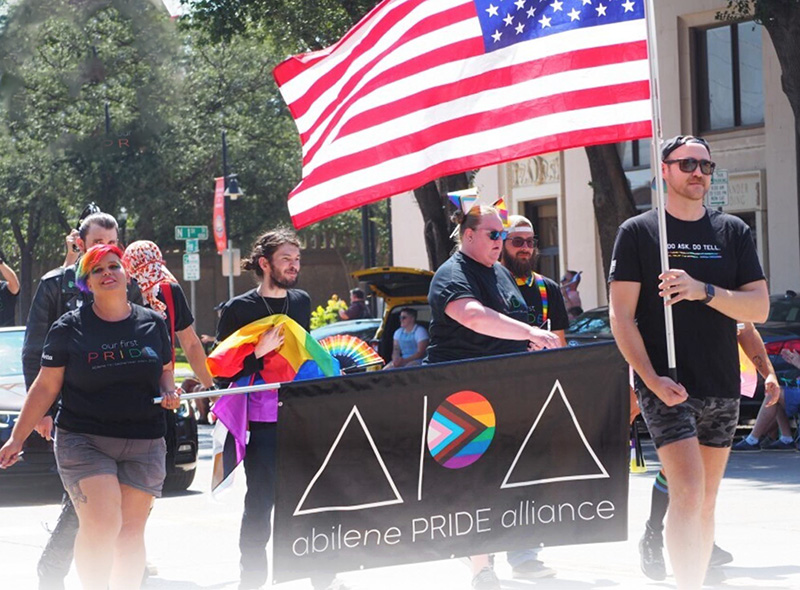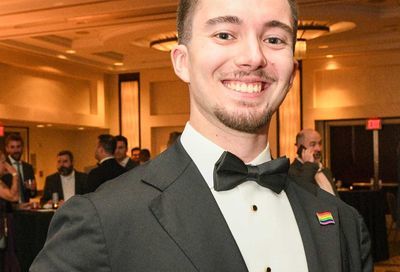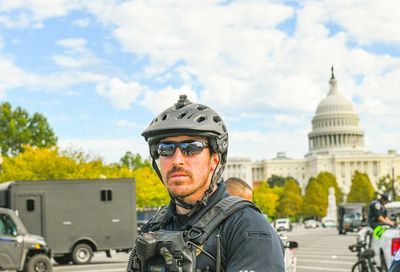Matthew Shepard’s Murderer Will Remain in Prison
State Parole Board refuses to commute Russell Henderson's double-life sentences for murdering the Wyoming youth.

The Wyoming Board of Parole has denied a commutation petition filed by Russell Henderson, one of the two men convicted of the 1998 murder of University of Wyoming student Matthew Shepard, whose brutal killing became a symbol of anti-gay violence and a rallying cry for hate crime legislation.
Henderson has served 25 years in prison. He was initially given two consecutive life sentences after pleading guilty to a charge of first-degree murder.
But he recently sought a commutation of his sentence, in the hope that, with credit for time served, the parole board would reduce his life sentences to a specific number of years in jail.
After a hearing, the board decided not to forward the petition to Wyoming Republican Gov. Mark Gordon for consideration, reports Christopher Wiggins in The Advocate.
“Mr. Henderson filed a commutation petition which the Board considered in accordance with its policies,” Wyoming Board of Parole Executive Director Margaret White told the magazine in an exclusive statement. “The Board held a hearing on Russell’s petition and declined to forward the petition to the Governor. This matter is now decided.”
White noted that, under Wyoming law, an inmate sentenced to life without parole may file a commutation petition every five years after serving a minimum of 10 years. That means Henderson can next file in 2029.
White declined to answer if Henderson had filed similar petitions previously, citing confidentiality concerns.
Henderson previously sought leniency in 2004, when his attorney filed a petition for post-conviction relief, claiming Henderson had not been adequately informed of his options to appeal the length of his sentence after pleading guilty.
Henderson had reportedly pled guilty to murder to avoid the death penalty. Ultimately, his 2004 petition was rejected, and Henderson has remained incarcerated at the Wyoming Medium Correctional Institution in Torrington, Wyoming.
Henderson and Aaron McKinney, who was found guilty at trial and also received two consecutive life sentences for Shepard’s murder, approached the college student at the Fireside Lounge in Laramie, Wyoming.
The two offered Shepard a ride home but took a detour to a remote rural area. There, they proceeded to rob, pistol-whip, and torture Shepard, fracturing his skull. They tied him to a split rail fence and left him to die.
Shepard was discovered alive but in a coma by a passing cyclist.
Police responded to the scene and untied Shepard, transporting him to a local hospital in Laramie. He was eventually moved to an advanced trauma ward at Poudre Valley Hospital in Fort Collins, Colorado, where he succumbed to his injuries five days later.
Shepard’s death — and the graphic details of his injuries, widely broadcast throughout the media — has been credited by many for reigniting debates over hate crime laws or bias enhancements in cases where violence appears to have been motivated by a victim’s sexual orientation or gender identity.
In 2009, then-President Barack Obama signed a bill bearing Shepard’s name that strengthens penalties for bias-motivated crimes and allows federal authorities to pursue hate crime investigations in instances where local authorities decline to take action.
The murder also sparked debates over the use of the “gay panic” defense after McKinney’s lawyer tried to argue his client was driven to temporary insanity by alleged sexual advances made by Shepard — even though the attempt to garner sympathy and receive a lighter sentence failed.
Similar defense tactics have been used in other high-profile killings of LGBTQ individuals, including Brandon Teena, Marco McMillan, Gwen Araujo, Angie Zapata, and Islan Nettles. However, according to the Movement Advancement Project, in the 26 years since Shepard’s murder, at least 20 states and the District of Columbia have passed laws outlawing the use of “LGBTQ panic” defenses to argue for more lenient sentences or penalties for crimes of violence.
Support Metro Weekly’s Journalism
These are challenging times for news organizations. And yet it’s crucial we stay active and provide vital resources and information to both our local readers and the world. So won’t you please take a moment and consider supporting Metro Weekly with a membership? For as little as $5 a month, you can help ensure Metro Weekly magazine and MetroWeekly.com remain free, viable resources as we provide the best, most diverse, culturally-resonant LGBTQ coverage in both the D.C. region and around the world. Memberships come with exclusive perks and discounts, your own personal digital delivery of each week’s magazine (and an archive), access to our Member's Lounge when it launches this fall, and exclusive members-only items like Metro Weekly Membership Mugs and Tote Bags! Check out all our membership levels here and please join us today!




























You must be logged in to post a comment.